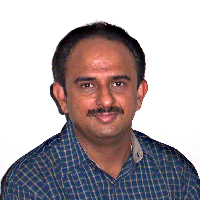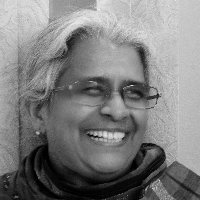Course ID: BSEE4001
Course Credits: 4
Course Type: Elective
Pre-requisites: None
Course ID: BSEE4001
Course Credits: 4
Course Type: Elective
Pre-requisites: None
What you’ll learnVIEW COURSE VIDEOS
Course structure & Assessments
12 weeks of coursework, weekly online assignments, 2 in-person invigilated quizzes, 1 in-person invigilated end term exam. For details of standard course structure and assessments, visit Academics page.
| WEEK 1 | Review of Signals and Systems, Continuous time signals and transforms Discrete time signals, Discrete Fourier transform, Autocorrelation and Cross-Correlation |
| WEEK 2 | Acoustic Feature Analysis of Speech Signals I, II Gaussian mixture models (GMM), universal background model (UBM-GMM), singular value decomposition (SVD) |
| WEEK 3 | Hidden Markov model (HMM), Examples of HMM based approach for ASR, TTS, speaker diarization Information bottleneck (IB) based clustering for diarization |
| WEEK 4 | Introduction and History of ASR and TTS Components of ASR: Acoustic Modelling, Punctuation Model (Lexicon) and language modelling (N-Gram Language models) |
| WEEK 5 | HMMs for Acoustic Modelling - Monophone, Triphone Speech Synthesis: unit selection, statistical parametric synthesis (HTS) |
| WEEK 6 | Neural networks for building speech technologies NN for Acoustic Modelling - Hybrid modelling- Hybrid-NN: DNN,CNN,TDNN |
| WEEK 7 | End-to-End Approaches I: CTC, Encoder-decoder Architecture E2E with RNN |
| WEEK 8 | Applications to ASR and TTS End-to-End Approaches II |
| WEEK 9 | Encoder-decoder Architecture E2E with transformers for ASR and TTS Interesting Problems |
| WEEK 10 | Speaker recognition/verification: with ivector, xvector Speaker diarization: using x-vector |
| WEEK 11 | Speaker adaptation: (revisit i, x vectors) and introduce s-vectors. Code Switched Speech recognition; Speech Translation |
| WEEK 12 | Singing voice synthesis; voice conversion; generic voice synthesis |
Prescribed Books
The following are the suggested books for the course:
L R Rabiner and R W Schafer, "Theory and Application of Digital Speech Processing", PH, Pearson, 2011.
L R Rabiner, B-H Juang and B Yegnanarayana, "Fundamentals of Speech Recognition", Pearson, 2009 (Indian subcontinent adaptation).
Xuedong Huang, Alex Acero, Hsiao-wuen Hon, "Spoken Language Processing: A guide to Theory, Algorithm, and System Development", Prentice Hall PTR, 2001.
References:
Thomas Quatieri, "Discrete-time Speech Processing: Principles and Practice", PH, 2001.
Rabiner and Schafer, "Digital Processing of Speech Signals", Pearson Education, 1993.
Recent research papers
About the Instructors

S. Umesh is a Professor of Electrical Engineering at IIT-Madras. He completed his PhD from the University of Rhode Island,USA and his PostDoctoral Fellowship from the City University of New York. He has also been a visiting researcher at AT&T Research Laboratories, USA; at Machine Intelligence Laboratory Cambridge University Engineering Department, UK and the Department of Computer Science, RWTH-Aachen, Germany.
He is a recipient of the AICTE Career Award for Young Teachers in 1997 and the Alexander von Humboldt Research Fellowship in 2004. During his stint at Cambridge University in 2004, he was part of the U.S. DARPA's Effective, Affordable Reusable Speech-to-text (EARS) programme. Similarly in 2005 he was part of the RWTH-Aachen's TC-STAR project for transcription of speech from European Parliament's Plenary Sessions. Between 2010-2016, he led a multi-institution consortium to develop ASR systems in Indian languages in the agriculture domain which was funded by MeiTY. He is currently leading the ASR efforts for the Natural Language Translation Mission managed by the Office of Principal Scientific Adviser of Govt. of India.
Other courses by the same instructor: BSDA5013 - Deep Learning Practice

Faculty at the Department of Computer Science and Engineering, Indian Institute of Technology Madras.
Please use only the above methods for program queries. Response time: 3 working days. During peak periods, Google Meet links will be shared. Call wait times may be longer.